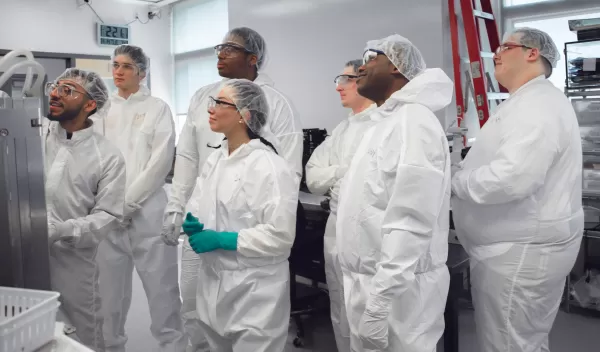
NSF and SRC to support semiconductor research experiences for undergraduates
The U.S. National Science Foundation and Semiconductor Research Corporation (SRC) recently signed a memorandum of understanding to support hands-on research opportunities for undergraduate students in research areas related to semiconductors. This partnership will advance the fundamental science and engineering of semiconductors and the development of a diverse science and engineering workforce for an area of high national priority.
"NSF recognizes the national need to build the domestic workforce in the areas of semiconductors and microelectronics," said NSF Assistant Director for Engineering Susan Margulies. "We are pleased to draw on NSF's ability to create research opportunities for a diverse set of students and to partner with SRC to make rapid progress on addressing this national need and enabling future discoveries."
Under the new five-year agreement, NSF and SRC will jointly support awards through the NSF Research Experiences for Undergraduates (REU) program for REU sites on semiconductor-related topics. In addition, to help introduce the industry perspective to faculty and students, SRC may invite awardees to share information with students about semiconductor industry career paths and conferences, to connect with representatives of SRC member companies, or to interact in other ways.
"I am an NSF REU success story," said SRC President and CEO Todd Younkin. "I was an REU student in Prof. Lisa McElwee-White's organometallic chemistry lab, and after a short summer in the program, I was hooked! The experience drove me into graduate studies in chemistry that led to an amazing career in nanotechnology with Intel. Now, I'm thrilled that NSF, SRC and SRC members can help create similar experiences for the next generation of semiconductor innovators."
The research community will be able to apply for funding in 2022, and students will participate at the new sites during the summer of 2023.
The REU program supports meaningful research opportunities across science and engineering topics supported by NSF. Approximately 6,000 students participate in NSF REU sites yearly. The typical REU site provides eight to 10 weeks of research and professional development activities for about 10 students, many of whom are women, persons with disabilities, Black, Hispanic or other underrepresented minorities.
"The REU program teaches students to think and work like scientists," said Sylvia Butterfield, acting NSF assistant director for Education and Human Resources. "It immerses them in authentic research in top-notch research settings at the cutting edge of science and engineering. In this way, the students don't just learn about science — they learn by doing, under the guidance of very experienced mentors."
For more than 70 years, NSF has recognized the central role that partnerships play in achieving the United States' research and development objectives. To learn more about NSF's partnership activities, visit nsf.gov.
